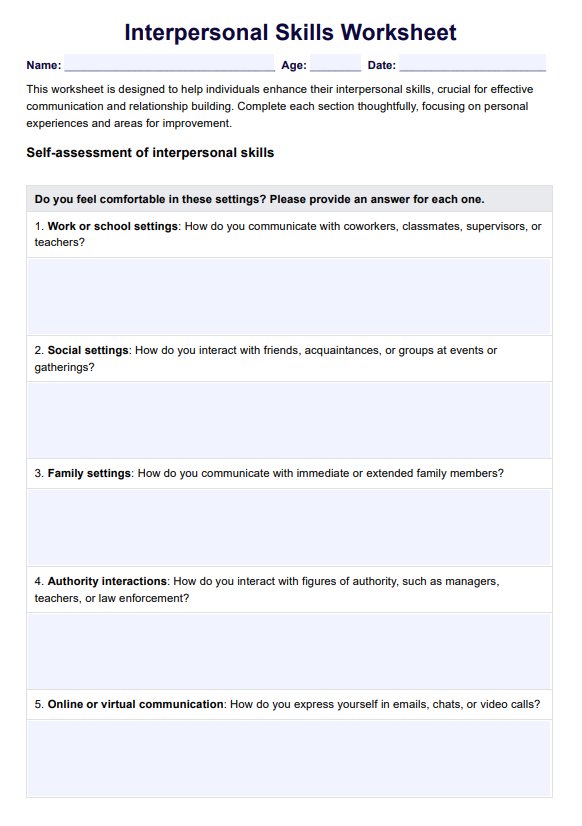Interpersonal skills can be improved by practicing effective communication, listening, empathy, and conflict resolution. Engaging in social interactions and seeking feedback can also enhance these skills.

Interpersonal Skills Worksheet
Help clients develop communication and relationship-building skills with our Interpersonal Skills Worksheet template. Try it today for free!
Interpersonal Skills Worksheet Template
Commonly asked questions
Practical exercises, role-playing, real-life scenario analysis, and guided reflections best teach interpersonal effectiveness skills. Training manuals like the DBT Skills Training Manual offer structured approaches to teaching these skills.
Interpersonal skills are crucial for work as they facilitate teamwork, effective communication, conflict resolution, and positive workplace relationships, leading to better collaboration and overall productivity.
EHR and practice management software
Get started for free
*No credit card required
Free
$0/usd
Unlimited clients
Telehealth
1GB of storage
Client portal text
Automated billing and online payments











